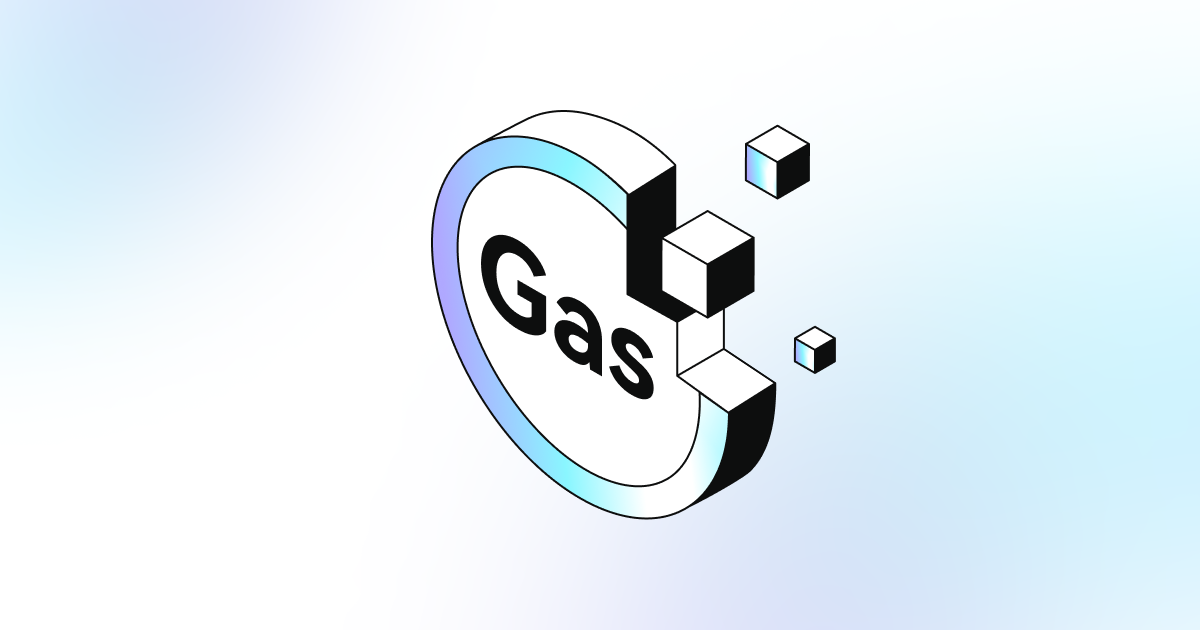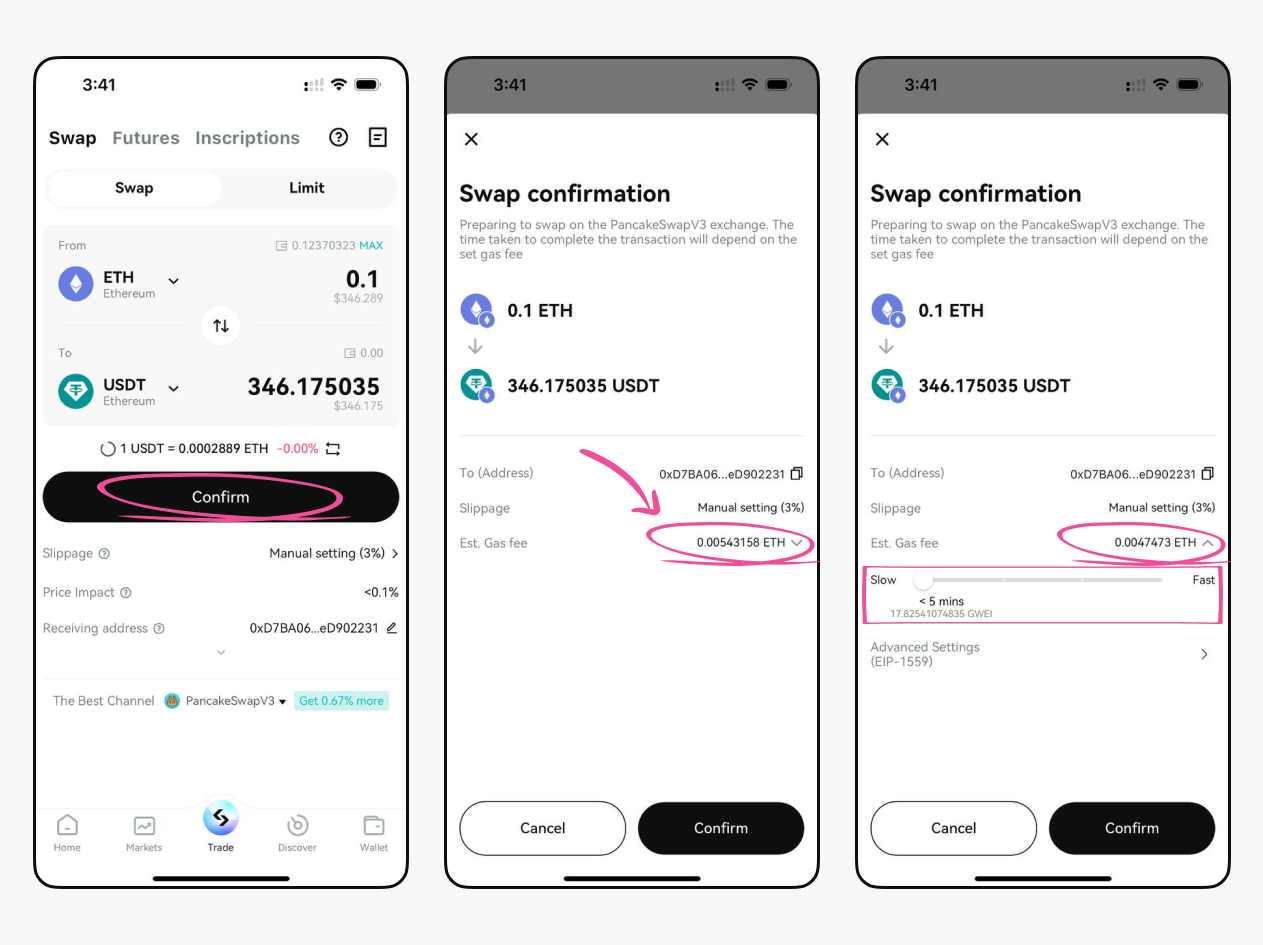A Beginner's Guide to Gas Fees in Crypto Transactions

Navigating the world of cryptocurrency can be exciting, but it also comes with its own set of terms and concepts that might be new to you. Amidst the flourishing DeFii ecosystem and the bustling activity on blockchain networks, such as the recent surge in popularity of meme coins, many users from centralized exchanges and newcomers are turning their attention to on-chain transactions.
What Are Gas Fees?
Gas fees are payments made by users to compensate for the computing energy required to process and validate transactions on a blockchain network. These fees are not fixed and can vary depending on the network's congestion and the complexity of the transaction.
Why Do We Have Gas Fees?
The primary reason for gas fees is to ensure the security and efficiency of the blockchain network. They act as an incentive for miners or validators (the individuals and companies that process transactions on the blockchain) to prioritize and process transactions. Without gas fees, malicious actors could potentially spam the network with countless transactions, leading to congestion and inefficiency. It's important to clarify that gas fees are not collected by Bitget Wallet, or other interfaces/protocols; instead, they are paid directly to the miners and validators of the blockchain network where your transaction occurs.
How Do Gas Fees Work?
When you initiate a transaction on a blockchain, such as sending cryptocurrency to another wallet or executing a smart contract, you will need to pay a gas fee. This fee is paid in the native cryptocurrency of the blockchain (for example, ETH on the Ethereum network).
The amount of gas required for a transaction depends on its complexity. Simple transactions, like transferring cryptocurrency, typically require less gas than more complex interactions, such as executing smart contracts in DeFi applications. A swap is considered one of smart contract executions.
Factors Affecting Gas Fees
-
Network Congestion: Like any service, blockchain networks have a capacity limit. The more people trying to make transactions, the higher the demand for processing power, which can lead to higher gas fees.
-
Transaction Complexity: More complex transactions require more computational work, increasing the gas fee.
-
Gas Limit and Gas Price: When making a transaction, users can set a gas limit (the maximum amount of gas they're willing to use for the transaction) and a gas price (the amount of cryptocurrency they're willing to pay per unit of gas). Setting a higher gas price can make your transaction more appealing to miners or validators, potentially speeding up the process.
Comparison of Estimated Gas Fees Across Major Blockchains
To further illustrate the concept of gas fees, here's a comparison of estimated gas fees for typical transactions across several leading blockchain networks:
| Blockchain Network | Transaction Type | Estimated Gas Fees |
| Ethereum (ETH) | Transfer | $4 |
| Swap | $20 | |
| Binance Smart Chain (BSC) | Transfer | $0.20 |
| Swap | $0.50 | |
| Solana (SOL) | Transfer | $0.01 |
| Swap | $0.02 | |
| Polygon (MATIC) | Transfer | $0.02 |
| Swap | $0.05 | |
| Layer 2s (ETH) | Transfer | $0.01-$0.10 |
| Swap | $0.10-$0.30 | |
| Avalanche (AVAX) | Transfer | $0.10 |
| Swap | $0.70 |
Note: These figures represent average levels of gas fees and can fluctuate due to network conditions.
Gas Fee Insights and Tips in Bitget Wallet
In the Bitget Wallet app, you have the option to check gas fees before completing a transaction. This feature allows you to make informed decisions by understanding the potential costs associated with your transactions. Here's how:
On the confirmation page for a swap transaction, you'll see the estimated gas fee displayed. This offers insight into the expected expense. To modify the confirmation speed of your swap, either to postpone for lower fees or to hasten it, simply tap the gas fee and slide the button to make your adjustments.

It's crucial to approach the selection of a network with your trading objectives at the forefront. When gas fees appear high, it's advisable to assess whether the transaction is urgent or if it could be postponed to a time when gas fees are lower. Or, you can choose mainnets known for their low fees, such as Arbitrum, Polygon, Optimism, Solana, and BNB Chain, which can help you minimize gas expenses.
If a transaction isn't time-sensitive, waiting for a period of lower gas fees could optimize your costs without hindering your trading strategy. This balanced approach allows you to effectively manage transaction expenses while achieving your desired outcomes on blockchain.
 No data found.
No data found.














